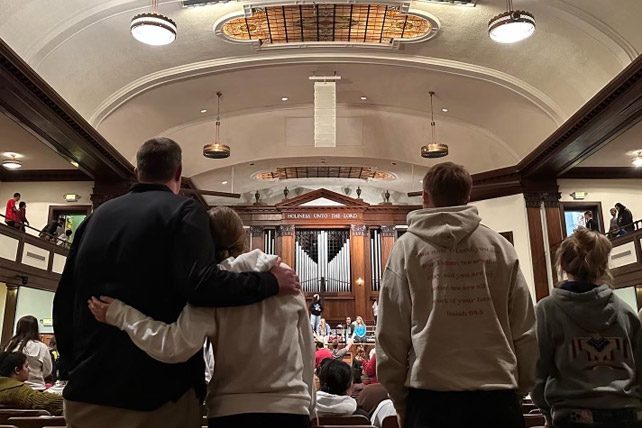The revival’s characteristics include heartfelt worship, sincere repentance, communal prayer, and an unwavering focus on the Holy Spirit’s presence. Attendees have reported profound personal transformations, citing experiences of redemption, renewed faith, and deeper spiritual commitments. This event’s authenticity and the palpable sense of community it fostered were captured in videos that circulated widely on social media, garnering international attention and sparking conversations about spiritual renewal and Christian commitment.
The Asbury Revival, while deeply personal for those involved, has also sparked academic and theological debates. Rooted in the Wesleyan tradition, the revival emphasizes transformational encounters with the Holy Spirit, aligning with John Wesley’s teachings on personal holiness and societal reform. This revival has led to discussions on the nature of modern-day revivals, their necessity within the Christian community, and their potential to confront and challenge prevailing spiritual complacency.
Critics and scholars have debated the revival’s implications, with some viewing it as a momentary emotional experience while others see it as a significant spiritual awakening. These debates often touch upon broader questions regarding the role of revivals in contemporary Christianity, the authenticity of collective religious experiences, and the dynamics between tradition and modernity in faith practices.
Addressing questions about its denominational stance, Asbury University remains a conservative, evangelical institution that, while rooted in Wesleyan traditions, operates independently of any specific denominational affiliation. It is neither United Methodist, Mormon, Catholic, nor liberal in its theological orientation. Instead, it represents a distinct strand of American Christianity that prioritizes personal faith, scriptural holiness, and the active living out of Christian principles.
The Asbury Revival of 2022 serves as a poignant reminder of the transformative power of faith and the continuous relevance of spiritual renewal. Its impact, while varying from person to person, underscores a universal desire for deeper connections with the divine and a more profound understanding of Christian discipleship. While the long-term significance of the Asbury Revival remains to be seen, its immediate effects on individuals and the broader Christian community highlight an enduring quest for authenticity, spiritual depth, and communal solidarity in faith.
Whether viewed through the lens of skepticism or belief, the Asbury Revival invites ongoing reflection and dialogue on the dynamics of faith, the nature of revival, and the contours of Christian commitment in the modern world. Its legacy, irrespective of one’s personal stance, is a testament to the power of collective spiritual experiences and the unending search for divine presence and purpose.

